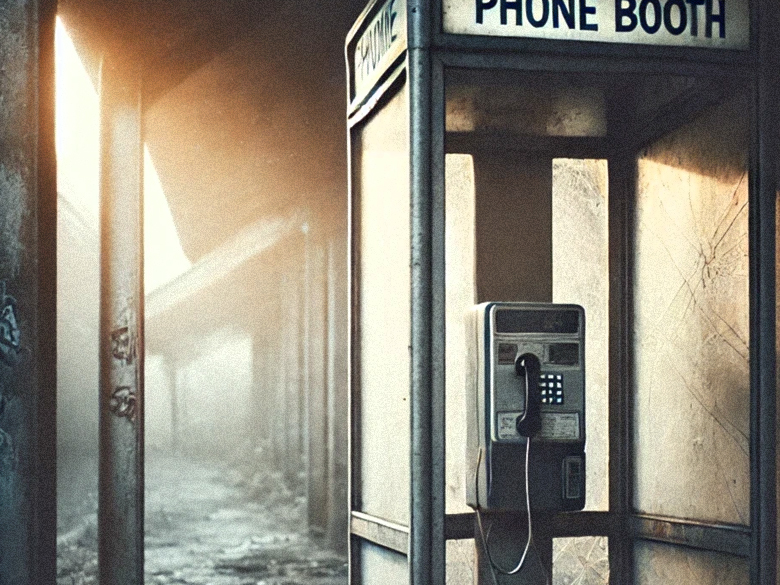
Election season is in full swing, which means one thing—pollsters are blowing up your phone, desperately hoping you’ll pick up and help them predict the future. But here’s the catch: nobody under 40 is answering.
Why? Because, well, trust issues. Between scam calls, fake IRS threats, and “urgent” car warranties, there’s nothing good waiting on the other end. So why are pollsters still leaning on the idea that a quick phone call to a stranger will give them a reliable snapshot of America? The 1980s called, and spoiler alert: it won’t work.
And it’s not just polling that’s out of touch—organized religion is right there with them, guilty of sticking to an outdated playbook that hasn’t made sense in decades. Both are lumbering institutions, clinging to traditions and methods that no longer connect. And honestly, whether you’re putting your faith in political polls or Sunday morning sermons, it’s time to rethink that blind trust.
The Missed Call of a Generation
If you’re under 40, unknown phone numbers are basically a warning sign. We’ve trained ourselves to swipe away every random call, knowing full well that it’s either a scam or something we don’t want. So why are pollsters still counting on this method to gauge public opinion?
It’s like churches trying to win back younger generations with the same tired sermons about sin and salvation, thinking that’ll do the trick. The reality is, both groups are trying to reach a demographic that checked out a while ago, and their old-school tactics just aren’t cutting it.
Pollsters and pastors alike are stuck in the past, failing to grasp that the landscape has shifted. Younger voters—and believers—are finding their own connections elsewhere, through social media, online communities, and even TikTok, while institutions cling to obsolete methods and outdated rhetoric. But here’s the thing: younger generations are beyond tired of listening to systems that don’t care to understand them. If institutions think they can just spruce things up to regain relevance, they’re sorely mistaken.
Blind Faith in Broken Systems
For some reason, though, we still put an odd amount of trust in these outdated systems. Poll after poll gets treated like gospel, yet each election reveals how off the mark they are. Sound familiar? It’s the same story with churches: sticking to messages that alienate rather than inspire, clinging to values that look more like the relics of an ancient institution than anything resembling truth or care. If these methods ever worked, they don’t anymore. And if the church’s whole approach seems hollow, maybe that’s because it is.
Remember 2016? Polls painted one picture, and then election night rolled around, and it was something else entirely. It’s the same with churches, which assume the younger generation will “come back” once they settle down. Spoiler alert: they won’t.
The Real Problem Isn’t Who’s Not Answering
The issue isn’t just about missed phone calls or empty pews—it’s about institutions that are completely out of touch with the people they’re supposed to serve. Pollsters keep calling, preachers keep preaching, and younger generations are saying, “No, thanks.” And yet, somehow, it’s the voters and churchgoers who get blamed for not showing up, not the institutions for refusing to adapt.
It’s the same misplaced trust over and over again. We’re conditioned to believe these systems know what they’re doing when, let’s face it, they really don’t. Pollsters keep telling us they have a handle on public opinion, even though they’re ignoring massive portions of the population. Churches refuse to admit that fear-based theology doesn’t resonate and keep rolling it out as if it’s going to fill pews. Maybe instead of blaming people for not answering, it’s time these institutions took a hard look at why their calls are being ignored.
Beyond Repair
In both politics and religion, the powers that be are losing their grip. The under-40 crowd is more skeptical and a lot less willing to follow blindly. Whether it’s the idea that polls are accurate or that church teachings are beyond critique, younger generations are done pretending these systems still have all the answers.
So what happens next? Pollsters might find a way to adapt—start using digital-first methods or find ways to reach people where they are. Churches, on the other hand, can keep trying to modernize all they want, but perhaps it’s too little, too late. The younger generations are finding their own way, and they don’t need an institution to tell them what’s right or wrong. If anything, they’re better off without it.
The Realization Everyone’s Been Waiting For
At the end of the day, whether we’re talking about politics or faith, the issue remains: both pollsters and preachers are banking on outdated systems. And when these systems inevitably fail (because they will), people are left disappointed and disillusioned.
If the message isn’t getting through, maybe the problem isn’t with the people ignoring the calls. Maybe it’s time to admit that some institutions are beyond repair.
In politics and religion, if you want to reach people, stop relying on tired methods and faulty messages. And churches, stop preaching to people who aren’t listening. The younger generation isn’t waiting around for you to change; they’re moving forward and finding meaning without you.














